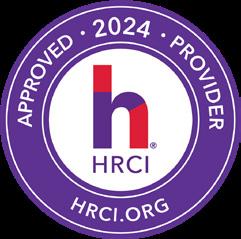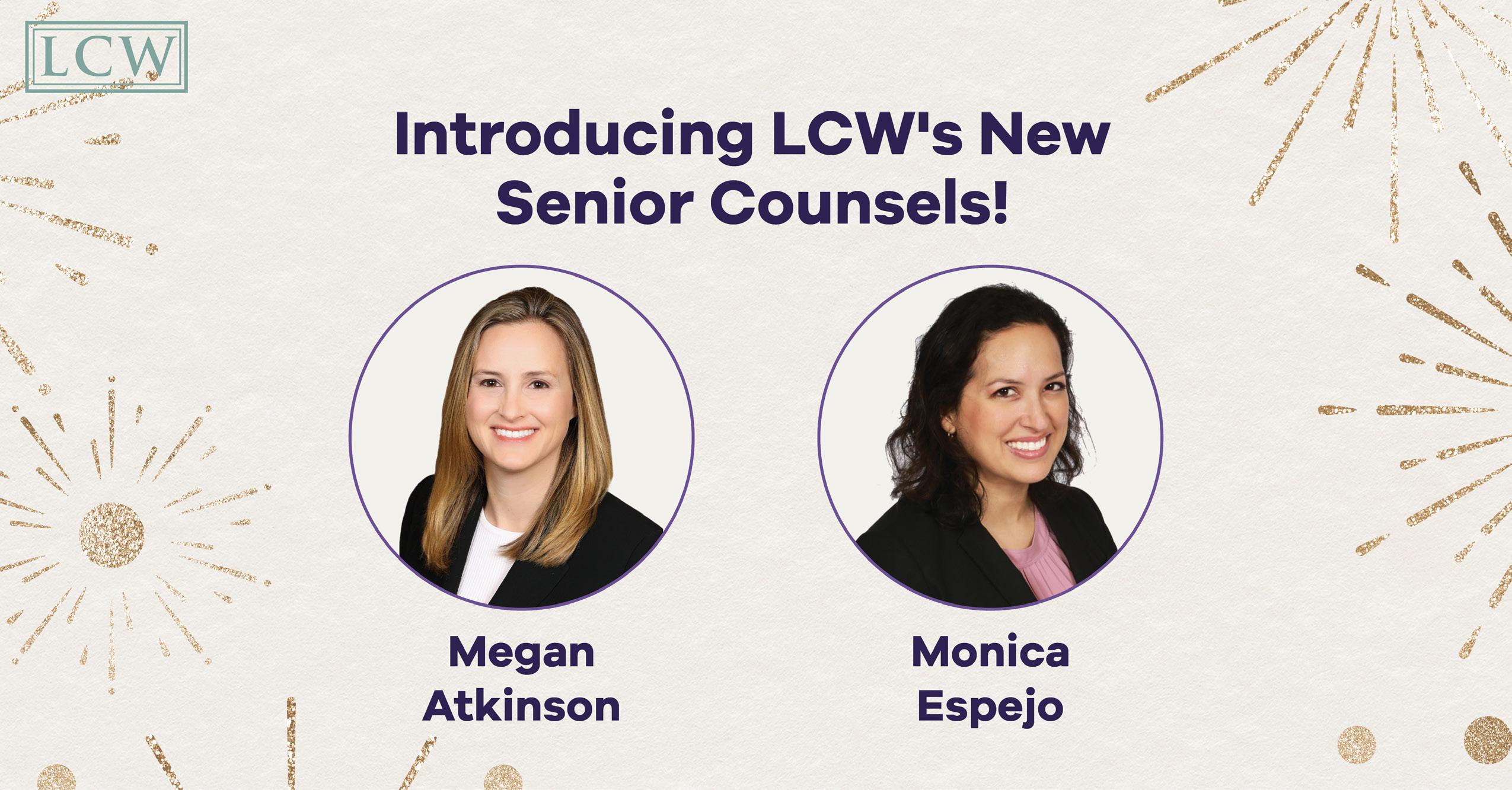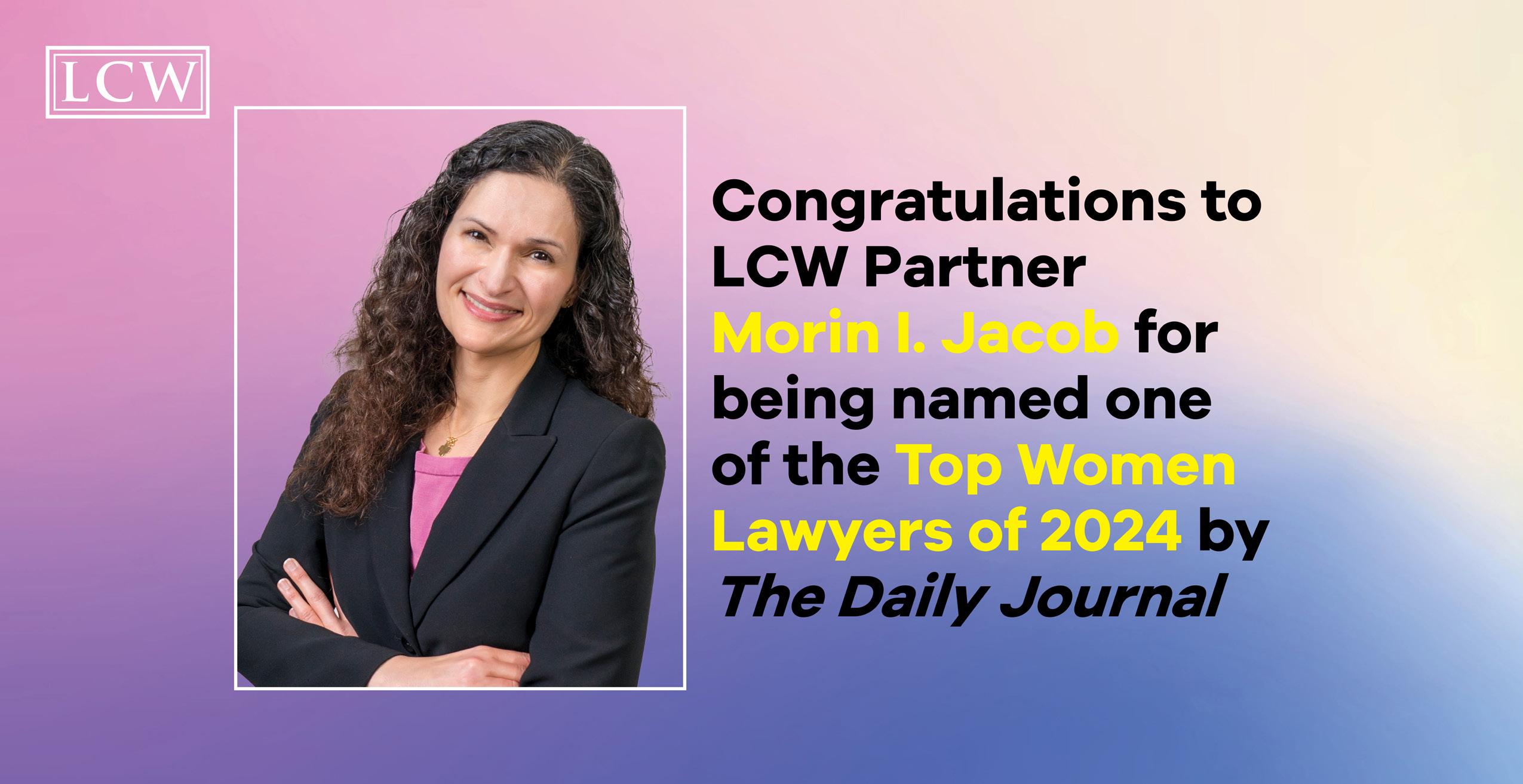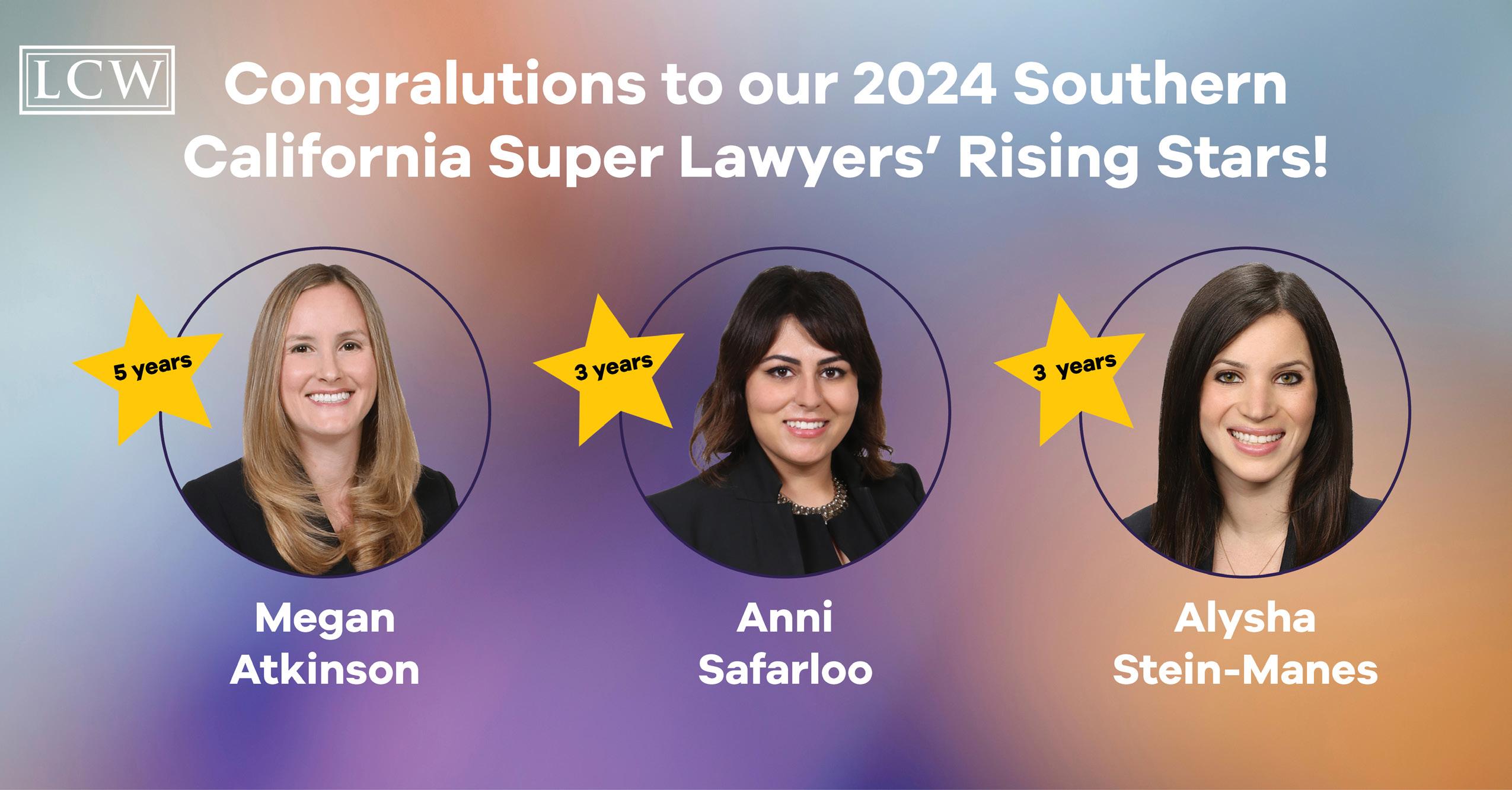




Stephanie J.
Madison


John Sandy Campbell worked as a resource specialist teacher from 2015 to 2017 at the Chavez Social Justice Humanitas Academy, part of the Los Angeles Unified School District. Campbell developed individualized education programs for students with special needs. The District dismissed Campbell in 2017 because she was excessively absent, among other things, which negatively affected students and staff. During Campbell’s two years of employment at the District, she was absent 52 days and partially absent or tardy 97 days.
Campbell appealed her dismissal to the Commission on Professional Competence (the Commission), which held an 11-day administrative hearing. The Commission upheld the District’s decision to dismiss Campbell. Campbell appealed the Commission’s decision by filing a petition for writ of mandate in superior court. The trial court denied Campbell’s petition and upheld her dismissal. Campbell then appealed to the appellate court.
On appeal, Campbell argued that (1) the Commission miscited the law and applied the wrong statutory subdivisions at her dismissal hearing, (2) there was not sufficient evidence for her dismissal, and (3) the court failed to apply “new” precedent when determining her fitness to teach.
First, the District conceded and the courts recognized that the Commission cited the incorrect subdivisions of Education code section 44932. However, the court of appeal held that Campbell had failed to establish error and the trial court properly addressed and dismissed the issue. The Commission had accurately listed, by name, the correct section 44932 causes for Campbell’s dismissal in its legal conclusions: unprofessional conduct, evident unfitness for service, and persistent violations of school rules. The Commission thus adequately informed Campbell of the bases for her dismissal. The court of appeal also noted that Campbell identified the correct statutory bases for her dismissal in her writ petition.
The court of appeal then addressed Campbell’s argument that there was insufficient evidence to support her dismissal. The court of appeal explained that to prevail on a sufficiency of the evidence argument, litigants must include in their opening brief all the material evidence on the disputed elements in the light most favorable to the prevailing party. Litigants must then persuade the court that the evidence cannot reasonably support the result. Campbell did not include the evidence at the administrative hearing in her brief and did not present the evidence in the light most favorable to the District. The court of appeal therefore rejected Campbell’s insufficiency challenge. The court of appeal also noted that the District pointed out the deficiencies in Campbell’s opening brief, yet she elected not to reply.
Finally, Campbell argued that a more recent case, San Dieguito, said that number of absences were not determinative to support a dismissal. The trial court had held that San Dieguito could be distinguished, because in San Dieguito, both partied had agreed that the teacher’s absences were for reasons considered legitimate under district policy. Additionally, Campbell had received many directives regarding attendance and substantiation, while the teacher in San Dieguito had not. The court of appeal also pointed out that the trial court did not uphold Campbell’s dismissal solely on the number of absences. The trial court had observed that Campbell’s poor attendance had a negative impact on students and burdened her coworkers. The trial court also pointed out that the “sheer magnitude” of Campbell’s “collective failures” set her apart from other teachers and that she “treated her position as a part-time job.”
The court of appeal held that Campbell had failed to demonstrate that the trial court’s decision was in error. The court of appeal affirmed the trial court’s judgment and awarded costs to the District.
Campbell v. Los Angeles Unified School Dist. (2024) 102 Cal.App.5th 156.
Note:
The May edition of Ed Matters summarized a case involving the same parties. In that case, the court of appeal dismissed Campbell’s claim that the District discriminated and retaliated against her by terminating her employment.


The LCW Labor Relations Certification Program is designed for labor relations and human resources professionals who work in public sector agencies. It is designed for both those new to the field as well as experienced practitioners seeking to hone their skills. Participants may take one or all of the classes, in any order. Take all of the classes to earn your certificate and receive 6 hours of HRCI credit per course! Join our upcoming HRCI Certified - Labor Relations Certification Program Workshops: July 11 & 18, 2024 - Trends and Topics at the Table The use of this official seal confirms that this Activity has met HR Certification Institute’s® (HRCI®) criteria for recertification credit pre-approval. Visit our website: www.lcwlegal.com/lrcp


In early 2019, UC Riverside’s Student Conduct and Academic Integrity Programs office (SCAIP) received a report expressing concern about the health of a member of the Phi Gamma Delta fraternity (PGD) pledge class. SCAIP conducted a welfare check for the student and then began an investigation into the PGD pledge process. Joseph Nofal was PGD’s UC Riverside chapter president and Chad Ayach was the “disciplinarian” for the chapter’s pledge campaign.
The investigator interviewed most of the PGD’s 2018 and 2019 pledges. Pledges told the investigator that: (1) as part of the pledge process, pledges were forced to complete workouts as “punishments”; (2) at least one such workout took place outdoors at night for several hours; (3) PGD members would take away “pledge pins” and pledges would engage in a mock kidnapping to retrieve the pins, which in one instance led to a pledge tasing a member; (4) PGD had a “check” system requiring pledges to complete household chores for members to work off their “checks”; (5) PGD would question pledges in an “intense” setting; (6) PGD required pledges to wear “feminine” clothing to a party; and (7) PGD performed a “date auction” where pledges were “sold” to bidders.
In April 2019, SCAIP sent notices to Nofal and Ayach, directing them to appear for an administrative review meeting. The notices informed them that many of the PGD pledge process activities appeared to meet UC Riverside’s definition of hazing. The notices also identified the student conduct policies that the pledge process may have violated. During their interviews, Nofal and Ayach eventually admitted that many of the alleged activities had taken place.
In June 2019, SCAIP sent Nofal and Ayach notices informing them that SCAIP had referred their cases to the student conduct committee for a hearing. In these and subsequent notices, the University provided additional details about the investigation and about information witnesses had provided.
Nofal had a hearing on September 10, 2019. Ayach had a hearing before the student conduct committee on October
3, 2019. In both hearings, the committee explained the charges and the SCAIP investigator presented the results of her investigation and provided a “master packet” containing reports and notes from the investigation. The investigator’s presentation and master packet identified the witnesses by initials. Nothing in the record indicated that the Nofal or Ayach attempted to call witnesses during the hearing. Nofal and Ayach did not contest that the events took place. Rather, they argued that they were not responsible for the events or that the activities did not constitute hazing.
On November 6, 2019, the committee issued its decisions. The committee found that both Nofal and Ayach had violated student conduct policies, and it expelled the students. Both students appealed to the vice-chancellor, who denied their appeals and upheld the committee’s decision.
On May 5, 2021, Nofal and Ayach filed a petition for writ of mandate challenging their expulsion. They argued that UC Riverside should not have redacted witness names and should have let them cross-examine witnesses. The trial court denied the petition and Ayach and Nofal appealed.
On appeal, Ayach and Nofal argued that UC Riverside deprived them of a fair administrative hearing prior to expelling them, because: (1) the identities of adverse witnesses were secret, depriving them of the opportunity to investigate the allegations, (2) the unidentified witnesses did not appear at the hearings, depriving them of the opportunity to confront them or assess their credibility, and (3) the “purported victim”, the pledge whose welfare check led to the investigation, did not appear or testify, depriving them of the right of confrontation.
The court of appeal held that there is no blanket right to cross examination, confrontation, or witness identity in all student disciplinary proceedings. A student disciplinary proceeding does not require the formalities of a criminal trial. Rather, students are entitled to notice and a hearing that affords them a meaningful ability to present their defense. The court of appeal found that the cases that Nofal and Ayach cited to requiring live witness testimony, cross-examination, and identification of witnesses did not apply. Those cases dealt with sexual misconduct and assault where the case turned on the
credibility of the opposing party (he-said, she-said). The court of appeal noted that UC Riverside did not allege that Nofal and Ayach engaged in sexual misconduct and the adjudication of the allegations did not depend on the credibility of adverse witnesses.
The court of appeal then assessed the fairness of Ayach’s and Nofal’s hearings. The court of appeal held that UC Riverside clearly communicated the accusations to Nofal and Ayach. Further, their statements reflected that they knew the identities of some of the witnesses and nothing in the record suggested they even attempted to call witnesses to testify.
The court of appeal held that the administrative proceedings afforded Nofal and Ayach the process they were due, given the nature of the charges and their response. The court of appeal affirmed the trial court’s denial of Nofal’s and Ayach’s writ petition and awarded costs to the UC Regents.
Ayach v. Regents of University of California (2024) 102 Cal.App.5th 331.
Federal Court Dismisses Instructors’ Claims That Anti-Harassment Policies Violated Their Free Speech Rights.
Dr. Michael Stannard worked at Clovis Community College, one of the colleges in State Center Community College District (SCCCD). He attended a race-sensitivity training on January 7, 2021, the day after the riots at the US Capitol Building. During the training, Stannard commented “that the riot at the Capitol was ‘bad’ ‘and that the burning of minority-owned businesses during last summer’s riots was [also] ‘bad.’” Then, in a “Justice and Healing Circle,” Stannard reported commented that “children do better if they are raised by both biological parents,” rather than single-parent households. Stannard later denied making this comment and represents that he stated “children have a right to be raised by their biological parents, and that there was a philosophical argument for the biological two-parent family based on the ‘problem of origins,’ i.e., children who do not know their parents question their own origins.” The organizer of the meeting told Stannard that his remarks were offensive, and another participant threatened to leave the group if they did not move on from the topic.
SCCCD’s Human Resources Department conducted an investigation into Stannard’s two comments and interviewed Stannard in March 2021. On May 10, 2021, the President of Clovis Community College, issued the notice of conclusion of investigation. They concluded that Stannard’s comments did not rise to the level of discrimination in violation of District policy, yet his comments offended some employees. The notice encouraged Stannard to demonstrate empathy towards others and reflect on how his statements may impact others, to ensure an inclusive working and learning environment. The notice then stated SCCCD’s anti-harassment and anti-discrimination policies, including that SCCCD “does not condone harassment, discrimination, unprofessional conduct, or other misconduct in the workplace…”
Stannard claims that the matter “should never have gotten this far” and that the warnings and instructions in the
notice were “nebulous and threatening” because they implied he had not demonstrated empathy, did not explain what “demonstrated empathy” meant, implied that he should reflect on how his statements undermined an inclusive working and learning environment, and included a “nebulous threat about ‘unprofessional conduct.’”
Another instructor, David Richardson is a self-identified “gay and conservative” history faculty member at Madera Community College, one of the colleges at SCCCD. On October 15, 2021, SCCCD required that its instructors attend a “College Hour” Zoom meeting on personal pronoun etiquette. Dr. Jamie MacArthur conducted the presentation and announced that they preferred “they/them” gender nonbinary pronouns. Under his name on Zoom, Richardson then filled out his preferred gender pronouns as “Do, Re, Mi.” Richardson argues that he did so, not as a joke, but to make “the serious point” that gender pronouns are “based on an irrational perception of reality” and that “it was not intellectually equitable to allow only certain people to pick preferred gender pronouns.” Nobody mentioned Richardson’s pronouns during the meeting.
On October 18, 2021, MacArthur sent an email to Richardson, saying that they were contacting him because he had “what appeared to be a joke shared where someone might normally share their pronouns on zoom (do-re-mi).”
MacArthur told Richardson that people in the trans community considered this extremely offensive and shared some resources on the topic. Richardson felt that this email was “threatening” and caused him to fear that he would be “cancelled” as a dissenting voice. Richardson responded to MacArthur’s email, referring to himself as “Do” in place of “I,” “mi” in place of “my,” and “they” in place of “you” and “your.” In Richardson’s email, he emphasized that he was not making a joke and accused MacArthur of disregarding his own choice of personal pronouns.
MacArthur contacted Human Resources and the union to request a facilitated discussion with Richardson. On November 1, 2021, SCCCD’s Employee Relations Coordinator emailed Richardson asking to speak to him regarding concerns over his use of pronouns. Richardson replied that “picking and choosing which personal pronouns people can and cannot use would amount to harassment and… a toxic work environment.” Richardson copied his supervisors and some faculty members on his email response because he thought MacArthur “was moving in the direction of ‘canceling’ him.”
SCCCD conducted an investigation into Richardson. The investigation concluded that Richardson (1) intentionally misused pronouns in a mocking manner for Jamie MacArthur eight times in the October 18, 2021 email; (2) intentionally used second-and third-person pronouns in a mocking manner in that email; (3) retaliated against MacArthur for raising concerns about his pronouns in the Zoom meeting and for seeking an informal resolution through HR; and (4) sent emails to Madera Community College staff and faculty as retaliation for MacArthur attempting to seek an informal resolution through HR in order to intimidate them into dropping their complaint. On May 17, 2022, the Vice President of Learning and Student Services gave Richardson a “Letter of Reprimand.” The letter instructed him to immediately stop using pronouns in a mocking manner and to act professionally when interacting with employees and students including over email. The letter also warned that further failure of this type may result in disciplinary action and may lead to termination. SCCCD required Richardson to complete six hours of Diversity, Equity, and Inclusion training and to respond to several reflection questions.
Stannard and Richardson filed a lawsuit against SCCCD, SCCCD’s Chancellor and Vice Chancellor of Human Resources. Stannard and Richardson alleged that the Chancellor and Vice Chancellor of Human Resources, acting in their official capacities, violated their First Amendment right to free speech by enforcing SCCCD’s anti-harassment and anti-discrimination policies. They argued the policies were vague and overbroad, amount to impermissible content-based and viewpoint discrimination, and have the effect of chilling speech through self-censorship. They requested prospective relief, injunctive relief, and declaratory relief. Richardson also brought six causes of action against SCCCD alone under state law. Defendants removed the case to federal court and filed a Motion to Dismiss for failure to state a claim and failure to establish standing.
SCCCD and the individual defendants argued they are immune under the Eleventh Amendment, which prohibits federal courts from hearing certain lawsuits against states. The trial court examined the Ex parte Young exception to Eleventh Amendment immunity. This exception allows plaintiffs to bring claims against officials in their official capacities for prospective injunctive relief, i.e. to bar officials from engaging in future behaviors.
The trial court found that both Stannard and Richardson’s requests were based on past conduct that was no longer “ongoing” and they did not adequately allege that the conduct would recur. Stannard’s investigation and Richardson’s discipline were not present or ongoing actions. Stannard and Richardson argued that these past events would chill future speech. The trial court found that this allegation was vague and did not provide enough information.
SCCCD also argued that Stannard and Richardson failed to establish that they were at risk of ongoing harm from self-censorship and chilled speech and thus could not sue.
The trial court explained that self-censorship must be based on an actual and well-founded fear that authorities will enforce the law or regulation that plaintiffs are challenging. To determine if plaintiffs have a wellfounded fear of enforcement, courts evaluate three factors: (1) whether plaintiffs have articulated a concrete plan to violate the law in question: (2) whether the authorities have communicated a specific warning or threat to initiate enforcement proceedings: and (3) the history of past prosecution or enforcement.
The trial court found that Stannard had not shown that he had a “concrete” plan to speak in a way that violated SCCCD’s policies. SCCCD had not given any “specific warning or threat” to initiate proceedings against Stannard; it had only recited its policies and encouraged him to be empathetic. Additionally, SCCCD’s
investigation found that Stannard had not violated SCCCD’s anti-discrimination policy. Therefore, even if Stannard made future comments about single-parent families or the Black Lives Matter Protests, his remarks would not be considered “discrimination” under SCCCD’s policies. The Court therefore held that Stannard’s alleged self-censored was a self-inflicted injury.
Richardson argued that SCCCD had an unwritten preferred gender pronoun policy, which chilled his speech because it was arbitrary and vague. The trial court found that Richardson had alleged a possible threat of future enforcement. The Letter of Reprimand ordered him to stop using pronouns in a mocking manner and threatened him with discipline if he failed to comply. However, Richardson failed to show how he has self-censored, because he did not alleged a “concrete plan” to make similar, future remarks about pronouns. Additionally, Richardson had not tied his previous discipline to the written policies that he and Stannard were challenging in this case.
The trial court held that Stannard and Richardson could not bring their free speech claims and granted SCCCD’s motion to dismiss. The trial court granted Stannard and Richardson 21 days leave to amend their complaint.
Stannard v. State Ctr. Cmty. Coll. Dist. (E.D.Cal. May 10, 2024, No. 1:22-cv-01250-JLT-EPG) 2024 U.S.Dist.LEXIS 86031.






Did You Know? LCW has four community college district consortiums across the State! Consortium members enjoy access to quality training throughout the year, discounts on other LCW products and events, and unlimited, complimentary telephone consultation with an LCW public education attorney on matters relating to employment and education law questions (including questions involving governance, business, facilities, and student matters!). We’ve outlined a recent consortium call and the provided answer on page 17. Client confidentiality is paramount to us; we change and omit details in the ERC Call of the Month.

LCW public education attorneys provide representation, advice and counsel to districts being audited by the State for compliance with the 50% law.
All of the new requirements for the WVPP, including training employees on the employer’s WVPP, must be completed by July 1, 2024. There is no grace period, meaning that DOSH enforcement will start immediately on that date.
LCW has developed several resources to help employers develop and implement a WVPP and training for their employees. You can read LCW’s Special Bulletin on this issue here. LCW offers resources, including an annotated model WVPP, template WVPP training materials, and detailed instructions and guidance on how to customize the materials. You can find more information about those resources here

The revised Title IX regulations take effect August 1, 2024. Districts must revise their policies and procedures and ensure training requirements are met. LCW offers training and forms to ensure your institution is compliant with the Title IX regulations. We can also assist with implementing your policies and procedures to stay up to date. LCW has created forms to assist Title IX teams at community colleges with the implementation of the revised regulations. LCW is also hosting a Webinar on July 24, 2024 to cover these changes. Please visit our website for more information on the webinar, templates and trainings, or reach out to an LCW attorney.
SEIU, Local 521 and Santa Clara County were parties to a memorandum of agreement (MOA) regarding physician assistants (PAs). PAs were required to maintain certain professional certification standards.
In 2019, the County disciplined a PA for failing to maintain the professional certification that the County bylaws required. The PA filed a grievance and won, so the County revised the certification bylaws. SEIU then filed a PERB unfair practice charge. SEIU argued that the certification bylaws were within the scope of representation and subject to bargaining.
PERB agreed with SEIU that the certification bylaws were within the scope of representation. However, PERB rejected SEIU’s request to include attorney’s fees as a standard, make-whole remedy. PERB explained that, except in cases in which there is a statutory right to attorney’s fees, a successful party cannot require the other party to pay its fees. A party in a PERB case seeking fees must normally show that its opponent pursued a claim, defense, or motion, or used a tactic without arguable merit and in bad faith.
PERB rejected the idea that, as a matter of course, a successful charging party should receive reimbursement of litigation expenses. PERB rejected SEIU’s request for attorney’s fees in this case as the County did not assert a frivolous, or bad faith defense.
County of Santa Clara, PERB Dec. No. 2900-M (April 23, 2024), judicial appeal pending.
LCW Partner Geoff Sheldon, Senior Counsel Dave Urban, And Associate Kelsey Ridenhour Win Dismissal Of Union Dues Deduction Case.
The U.S. Supreme Court determined in its 2018 opinion in Janus v. AFSCME that the payment of union dues is a form of political speech, which triggers the First Amendment of the U.S. Constitution.
Based on Janus, a court reporter sued her union, the State of California, the superior court, and a county for violating her First and Fourteenth Amendment rights to free speech and due process. The court reporter claimed that the superior court and the county continued to collect union dues from her paycheck after she had terminated her union membership and had rescinded her dues-deduction authorization. She also alleged that the union forged her
signature on the authorization form and misrepresented to the superior court and the county that the deductions should continue.
LCW represented the county, which processed payroll for the superior court employees. LCW defended the county in both the District Court and in the Ninth Circuit Court of Appeals. At each level, the courts agreed with LCW’s arguments and dismissed the court reporter’s claims.
As to the Fourteenth Amendment procedural due process claim, the county had no reason to doubt the union’s representations that the court reporter had authorized the dues deductions. The courts also agreed that the county had no duty to verify the validity of the authorizations.
As to the First Amendment free speech claims, the courts agreed that the county was not the proximate cause of the unauthorized dues deduction. The county could not have foreseen the court reporter’s First Amendment injury because the county had: 1) no duty to ensure that the dues authorization forms were genuine; and 2) no notice that the court reporter had contested the dues deductions from her paycheck.


The U.S. Department of Health and Human Services (HHS) has issued a final rule for Section 1557 of the Affordable Care Act (ACA) that broadens protections against discrimination on the basis of race, color, national origin, sex, age, and disability with health programs and activities receiving federal financial assistance.
The final rule does not apply to employment practices, which means that public agencies cannot face employment discrimination claims brought under Section 1557 (although other federal and state laws prohibiting employment discrimination continue to apply to public agency employment). Although Section 1557 is not an employment discrimination law, public education employers should still be aware of Section 1557 since it relates to services provided by health insurance issuers that the District may contract with. Here are the key provisions of the Section 1557 final rule public agencies should be aware of:
1. Section 1557 makes it unlawful for health care providers and health insurance issuers that receive federal financial assistance to refuse to treat or otherwise discriminate against an individual on the basis of race, color, national origin, sex, age, or disability.
2. Section 1557 applies to doctors, hospitals, health clinics, health insurance issuers, state Medicaid agencies, community health centers, physicians’ practices, home health care agencies, and Covered California when these providers receive federal financial assistance.
3. Section 1557 requires health insurance coverage and other health-related coverage to provide the most integrated setting appropriate to meet the needs of
qualified individuals with disabilities.
4. The prohibition of sex discrimination includes, but is not limited to, prohibiting discrimination on the basis of sexual orientation, gender identity, sex characteristics (including intersex traits), pregnancy or related conditions, and sex stereotypes.
5. The Office for Civil Rights investigates discrimination complaints under Section 1557.
Final Rule and Interpretation: Nondiscrimination in Health Programs and Activities, 42 CFR Parts 438, 440, 457, and 460; 45 CFR Parts 80, 84, 92, 147, 155, and 156, 89 Fed. Reg. __ (May 6, 2024); Fact Sheet: Strengthening Nondiscrimination Protections and Advancing Civil Rights in Health Care through Section 1557 of the Affordable Care Act (Apr. 26, 2024); Section 1557 Final Rule: Frequently Asked Questions (Apr. 26, 2024).
Alcoa USA Corporation had a history of collective bargaining agreements promising that Alcoa would provide employees with healthcare benefits when they retired. Over time, Alcoa faced increasing healthcare costs and sought ways to limit or cap the retiree healthcare expenses.
In 2021, Alcoa unilaterally replaced the fixed group health insurance plan it provided to retirees with a health reimbursement arrangement (HRA). A group of former Alcoa employees (retirees) filed a lawsuit claiming Alcoa had promised them lifetime healthcare benefits that could not be unilaterally diminished. They argued the new HRA reduced their retiree healthcare benefits in violation of that promise.
The Southern District Court of Indiana first analyzed whether the retirees had a vested right to lifelong healthcare benefits. It determined that the doctrine of judicial estoppel prohibited Alcoa from arguing that retirees did not have lifelong healthcare benefits. Alcoa was in a rare situation where it had faced a prior lawsuit from a different group of retirees over their retiree healthcare benefits. As part of that prior lawsuit, Alcoa had represented and made statements that retiree health benefits were guaranteed for life. The District Court found that Alcoa could not now go back and argue that retirees did not have a vested right to lifelong healthcare benefits.
The District Court then reviewed whether the new HRA was “reasonably commensurate” with the retirees’ prior health insurance plan. Alcoa argued that it did not violate the collective bargaining agreements because the new HRA was reasonably commensurate with the prior health insurance plan. However, the District Court found that no reasonable jury could find that to be accurate. The District Court addressed three reasons the new HRA was a significantly reduced benefit compared to lifelong healthcare benefits. First, the terms of the new HRA stated that Alcoa could terminate it at any time, which was a substantial decrease in benefit compared to the retirees’ lifelong healthcare benefits. Second, onethird of the retiree group was not eligible to participate in the HRA, despite Alcoa guaranteeing them lifelong healthcare benefits. Third, the HRA shifted the burden of rising healthcare costs from Alcoa onto the retirees. The District Court granted the retiree’s partial motion for summary judgment as to liability.
Note:
This case presented an unusual situation where the employer was judicially estopped from arguing that its retiree healthcare benefits were not vested for the lifetime of the retiree. Generally, whether or not a collective bargaining agreement or a memorandum of understanding has created a vested right to lifelong retiree healthcare benefits is a specific analysis that will depend on the exact contractual language and the history of prior contract language. Kaiser v. Alcoa USA Corp., 2024 WL 1283535 (S.D. Ind. 2024).
Each month, LCW presents a monthly benefits timeline of best practices. This timeline is intended to apply to agencies that are applicable large employers for Affordable Care Act purposes.
June
• Prepare for the end of the fiscal year, including budgeting for employee benefits.
• Consider whether the agency wants to revise its Section 125 cafeteria plan document. Prepare for any changes to ensure their timely adoption by December 31, before the next calendar year.


Visit our website for all our on-demand offerings: www.lcwlegal.com/events-and-training/on-demand-training


LCW Train the Trainer sessions will provide you with the necessary training tools to conduct the mandatory AB 1825, SB 1343, AB 2053, and AB 1661 training at your organization.
California Law requires employers to provide harassment prevention training to all employees. Every two years, supervisors must participate in a 2-hour course, and non-supervisors must participate in a 1-hour course.
Trainers will become certified to train both supervisors and non-supervisors at/for their organization.
Attendees receive updated training materials for 2 years.
Pricing: $2,000 per person. ($1,800 for ERC members).
Via Zoom October 2, 2024 9:00 AM - 4:00 PM
To learn more about our program, please visit our website below or contact Anna Sanzone-Ortiz 310.981.2051 or asanzone-ortiz@lcwlegal.com.
Members of Liebert Cassidy Whitmore’s consortiums are able to speak directly to an LCW attorney free of charge to answer direct questions not requiring in-depth research, document review, written opinions or ongoing legal matters. Consortium calls run the full gamut of topics, from leaves of absence to employment applications, student concerns to disability accommodations, construction and facilities issues and more. Each month, we will feature a Consortium Call of the Month in our newsletter, describing an interesting call and how the issue was resolved. All identifiable details will be changed or omitted.
Education Code section 87018 states that Community College Districts may provide additional benefits to employees who are on active military duty, so that their benefits and pay are the same as they would have been if they had not been called to active military duty. A Community College District client asked LCW whether this matter was subject to negotiation with unions or if it could be approved solely by the governing board.
The LCW attorney told the client that the matter is negotiable because it affects the terms and conditions of employment and it is a benefit that goes beyond the minimum legal requirements. However, if the compensation is being provided to employees who are not covered by a collective bargaining agreement, then the policy only needs to be approved by the governing board.

